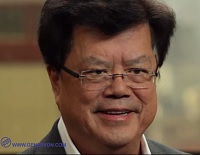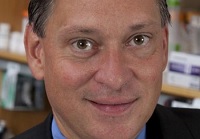 "The lame will leap like a deer, and the mute tongue shout for joy."
"The lame will leap like a deer, and the mute tongue shout for joy."
Isaiah 35:6
Genervon CEO Winston Ko has repeatedly prodded desperate ALS patients and their families to demand that the FDA provide an accelerated approval to allow sales of its controversial drug based on the data from 8 patients in one tiny study. Ruling out any kind of compassionate-use program, and citing the Bible passage above for inspiration, the company has ignited one of the most popular petitions on change.org, attracting more than half a million signatures in a powerful social media campaign aimed straight at FDA officials.
 |
| Genervon CEO Winston Ko |
The petition's sponsors are whipping up support for an FDA decision on accelerated approval that they say is due in "mid-April." News reports, including a recent one in the prestigious Washington Post, followed up by repeating the company's assertions and saying that the company applied for an accelerated approval--a process outlined by federal law--earlier this year.
What Genervon execs haven't done is provide any evidence of an actual application for the drug. And without an application, there can be no response from the FDA, which would then be allowed to accept the application or kick it back as insufficient. As it stands, the agency is bound by law not to comment on most aspects of the approval process, leaving that to the companies to handle.
 |
| Steve Perrin |
With few options, on Friday the FDA instead took the extraordinary step of challenging Genervon to publish the data that many patients and their advocates mistakenly believe is already available. That call from the agency followed a review of the study by Steve Perrin, president and chief scientific officer of the ALS Therapy Development Institute, which raises serious questions about the validity of the data from 8 patients which has been revealed so far.
Genervon twice declined to even answer a query from FierceBiotech about when, and if, the company had filed an application. Late on Sunday the company sent a lengthy email repeating its position on the partially released data, then added this mangled response to the question:
"If you tell where do you get the identical question we received from several journeys (journals?) Genervon would be happy to supply you with an answer."
A few hours later the company followed up by email to say that it didn't care what is inspiring the question, then repeated earlier wording from a March press release saying that it had filed a "formal request" for accelerated approval.
There is no "formal request" pathway for an accelerated approval at the FDA.
Ko has repeatedly made exaggerated claims about the curative powers of his drug, calling the naturally occurring peptide a "master regulator of the human nervous system" which has an amazing if not miraculous impact on thousands of genes, including dozens linked to such terrible diseases as ALS, Parkinson's and Alzheimer's, targets that have defied drug developers willing to spend hundreds of millions of dollars in pursuit of a new treatment.
"Our drug works because all of the genes that are mutant or defective or overactive are being controlled by us to bring it back to order," Ko claimed in one video posted on YouTube in 2013. GM6 is a peptide that is present during fetal development, he has asserted, driving the development of the nervous system. And Ko said two years ago that the company was looking to ink partnerships with pharma companies.
None have been reported.
"Years of research and preclinical testing demonstrated that this regulator peptide, GM6, had remarkable protective and even regenerative qualities in cases of neurological diseases and injuries," Genervon claimed in a statement released last February. "Despite making many innovative discoveries and accumulating a great deal of very promising drug development data, Genervon intentionally kept a low profile to avoid unnecessary attacks from the medical-industrial complex."
There has been no peer-reviewed publication about this drug in any of the scientific literature.
The social media campaign in its support, though, has adopted Genervon's language in describing the drug. And prominent media groups like the Washington Post, The Guardian and The New York Times have repeated the claims in independent stories and a patient advocate column without critically examining the data.
"In an early-stage trial with 12 patients, the results were 'statistically significant,' 'very robust' and 'dramatic,' the company said in news releases," the Post reported in early April. "Such enthusiastic pronouncements are unusual for such a small trial. In February, Genervon took an even bolder step: It applied to the Food and Drug Administration for 'accelerated approval,' which allows promising treatments for serious or life-threatening diseases to bypass costly, large-scale efficacy trials and go directly to market."
In the real biotech world, enthusiastic pronouncements about experimental meds are SOP, starting in preclinical animal and lab studies and running right through clinical-stage work. Genervon, though, has pushed far past routine optimism and into the realm of using questionable statements to promote a social media campaign designed to gain early sales approval. And Genervon still has some explaining to do to the ALS community about that so-called application to the FDA. -- John Carroll (email | Twitter)